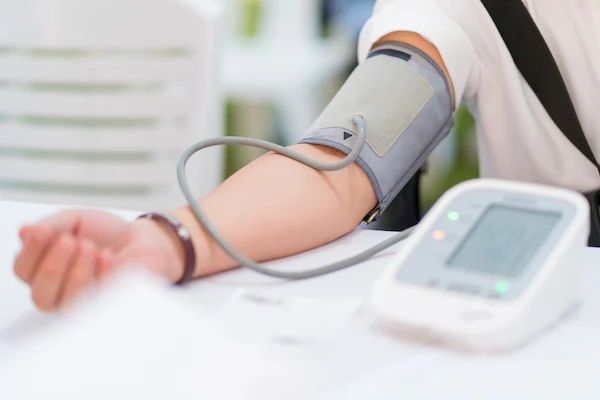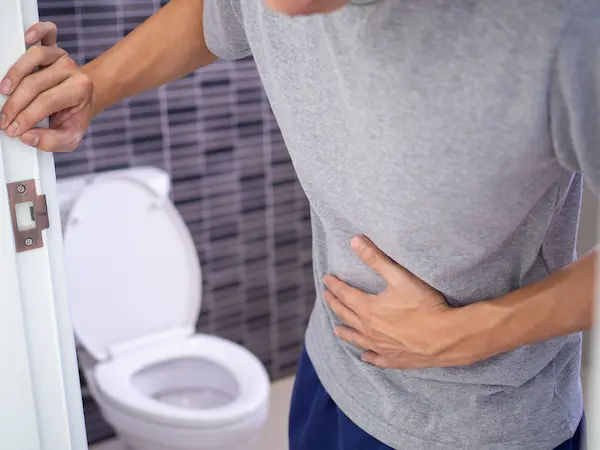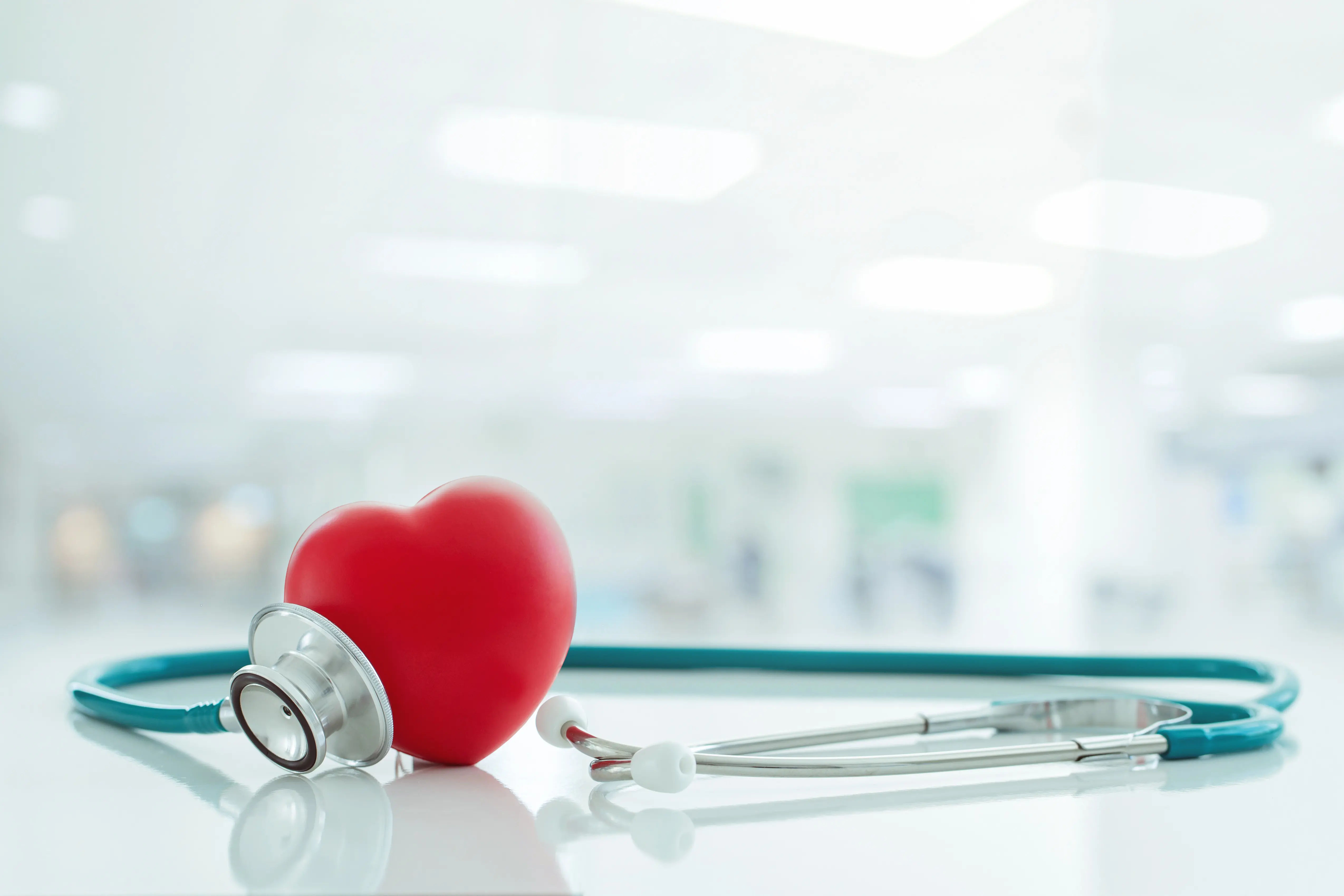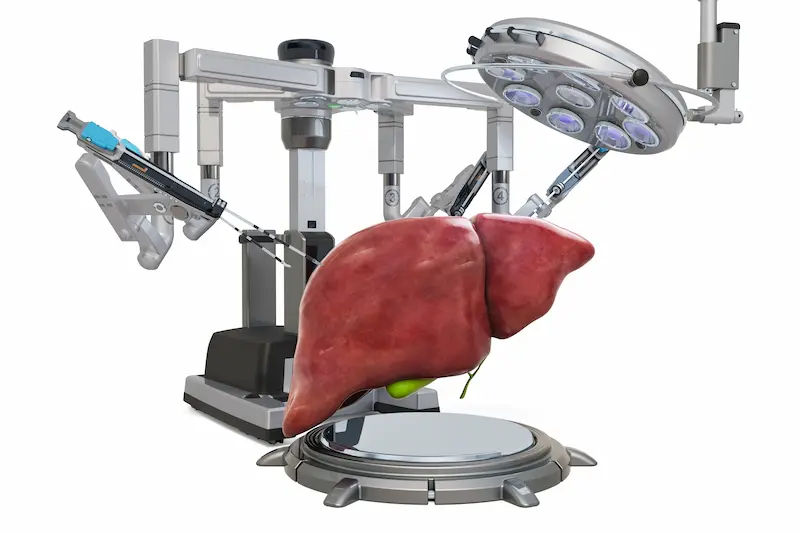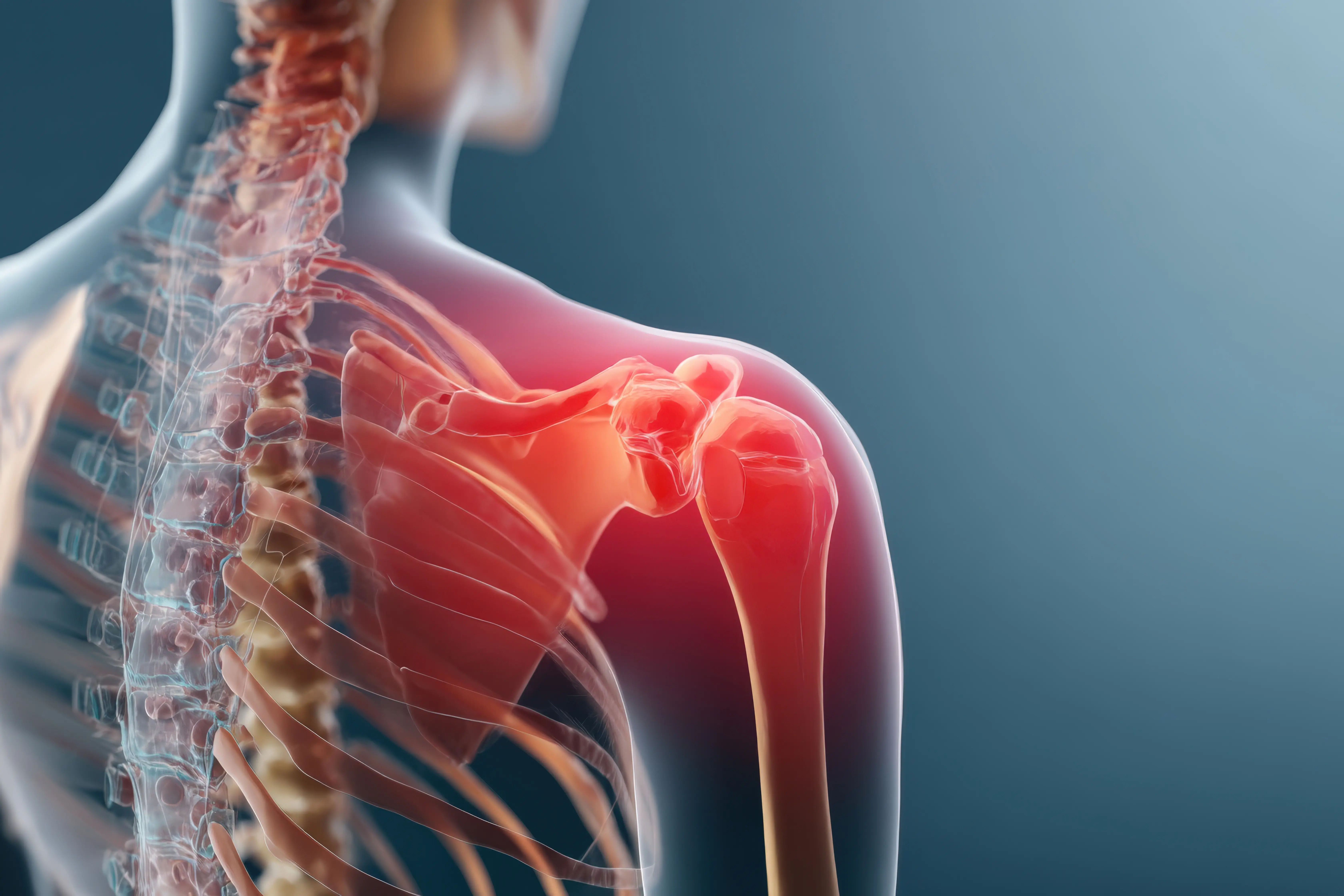Guide to Simple Habits for Healthy Kidneys
Discover easy, science-backed habits to keep your kidneys healthy. Learn how to eat, drink, exercise, and test wisely to protect your kidney function and prevent disease.

_1.webp?tr=q-80,f-webp,w-350,dpr-2,c-at_max 700w)
Introduction
Your kidneys quietly work 24/7 to filter waste, balance fluids, regulate blood pressure, support bone health, and even help make red blood cells. Yet many of us only notice them when there’s a problem. The good news? A handful of simple, daily habits can go a long way toward keeping your kidneys healthy—especially if you have risk factors like high blood pressure, diabetes, kidney stones, or a family history of kidney disease.
In this guide, you’ll learn the most practical, science-backed steps to protect your kidneys, what to eat and drink, which medications to be careful with, how to spot early warning signs, and when to get tested. We’ll also share easy habit-building tips so these changes actually stick. Whether you’re starting from scratch or fine-tuning your routine, these simple habits for healthy kidneys can fit any lifestyle and help you feel your best.
Know Your Kidneys: What They Do and Who’s at Risk
Your kidneys filter about 180 litres of fluid a day, removing waste and balancing minerals, acid-base status, and fluids. They help regulate blood pressure through hormones like renin, activate vitamin D for bone health, and stimulate red blood cell production via erythropoietin. When kidney function declines, waste accumulates, blood pressure rises, anaemia and bone issues can follow, and risk of heart disease increases.
Who’s at risk?
- Diabetes and high blood pressure are the top causes of chronic kidney disease (CKD).
- Other risks: Family history of kidney disease, age over 60, obesity, smoking, repeated kidney stones, frequent NSAID use, and cardiovascular disease.
- Prevalence: About one in seven adults in the US has CKD, and most don’t know it. Global estimates hover near 9%. Early CKD is often silent.
Early signs of kidney problems to watch for:
Foamy urine (possible protein), swelling (legs, ankles, around eyes), fatigue, reduced urine output, persistent high blood pressure, unexplained nausea, and night-time urination changes. Many are non-specific—screening matters.
Bottom line: If you have risks, simple habits can meaningfully reduce your chances of kidney decline. Routine screening (eGFR and urine albumin-to-creatinine ratio, or uACR) can catch issues early.
The 3 Core Goals for Kidney Protection
- Keep blood pressure in a healthy range.
- Maintain healthy blood sugar and insulin sensitivity.
- Reduce kidney “strain” from high sodium, excess protein (in CKD), dehydration, and toxins (tobacco, NSAIDs).
Consult Top Specialists
Eat Smart: A Kidney-Friendly Diet You Can Live With
You don’t need a restrictive kidney diet if your kidneys are healthy—focus on a balanced, plant-forward plate that supports blood pressure and blood sugar. Here’s how to eat for kidney health without complicated diet plans:
The Plate
- Half your plate: Vegetables and fruit (focus on colour and fibre).
- One quarter: Whole grains or starchy veg (brown rice, millet, whole wheat roti).
- One quarter: Lean protein (beans, lentils, tofu, fish, eggs, poultry).
- Add healthy fats: Olive or mustard oil, nuts, and seeds.
Sodium—The Hidden Strain
Goal: 1,500–2,300 mg sodium per day (about 3.8–5.8 g salt). Reducing salt helps lower blood pressure and reduces kidney stress.
How to reduce salt for kidney health:
- Swap processed meats, instant noodles, pickles, and crisps for fresh, minimally processed foods.
- Read labels: Aim for less than 300 mg sodium per serving; watch sauces and condiments.
- Flavour with herbs, citrus, garlic, and spices instead of salt blends.
- Restaurant tip: Ask for “no added salt” and request sauces on the side.
Protein and Kidney Health
- If you don’t have CKD, moderate protein is fine (typically 0.8–1.0 g/kg/day). Very high-protein crash diets can increase kidney workload without benefit.
- If you have CKD, your clinician may advise lower protein intake to slow progression—often 0.6–0.8 g/kg/day.
- Balance animal and plant proteins; plant-forward diets like DASH or Mediterranean support kidney and heart health.
Potassium, Phosphorus, and Calcium—Do You Need to Limit?
- With normal kidneys, you usually don’t need to limit potassium or phosphorus from whole foods.
- With CKD, you may need personalised limits—don’t self-restrict. A dietitian will tailor your plan based on labs.
Practical Meal Ideas
- Breakfast: Oats with nuts and berries; vegetable poha with peanuts and lemon; eggs with whole grain toast and tomato.
- Lunch: Brown rice with dal and salad; whole-wheat roti with chana masala and sautéed greens; quinoa with stir-fry tofu.
- Dinner: Grilled fish or chicken with roasted vegetables; rajma with millets; vegetable khichdi with yoghurt.
- Snacks: Fresh fruit; unsalted nuts; roasted chana; yoghurt with cinnamon.
Pair calcium with high-oxalate foods (spinach, nuts) during the same meal if you’re prone to kidney stones—calcium binds oxalate in the gut and lowers stone risk.
Drink Right: Hydration and the Best (and Worst) Beverages
Hydration is foundational for kidney function. Enough fluids help your kidneys filter efficiently and may reduce stone formation by diluting urine. Here’s how to hydrate properly for kidney function:
How Much to Drink?
- A general starting point: about 2–3 litres per day for most healthy adults, adjusted for climate, activity, and medical advice.
- Aim for pale-yellow urine as an easy check.
- For those with heart failure or advanced CKD, fluid may need restriction—follow your doctor’s plan.
Best Drinks for Kidney Health
- Water: Still the gold standard.
- Citrus-infused water (lemon or lime): Citrate can help prevent certain kidney stones.
- Unsweetened tea or coffee: Moderate intake is fine; avoid excessive caffeine if it raises your blood pressure or disrupts sleep.
Be Cautious With
- Sugar-sweetened beverages: Linked to weight gain and diabetes, which harm kidneys.
- Energy drinks and high caffeine: Can raise blood pressure and strain kidneys.
- Alcohol: Moderate only; excess raises BP and dehydrates.
- “Detox” juices: Often high in sugar with no proven kidney detox benefit.
Hydration Habits That Stick
- Keep a refillable bottle with time marks.
- Drink a glass of water with each meal and when you wake up.
- Flavour water with fruit or herbs; brew a pitcher of unsweetened tea.
Control the Big Two: Blood Pressure and Blood Sugar
Most kidney damage stems from hypertension and diabetes. Protecting your kidneys often means preventing or improving these conditions. Here’s how controlling blood pressure and blood sugar protects your kidneys:
Manage Blood Pressure for Kidneys
- Targets vary, but many adults benefit from keeping blood pressure under about 130/80 mmHg—your doctor will personalise this.
- Daily BP habit: Measure every morning after sitting quietly for five minutes; record it.
- Lifestyle levers: Lower sodium, move daily, maintain a healthy weight, limit alcohol, manage stress, and take medications as prescribed.
Diabetes and Kidney Damage Prevention
- Keep HbA1c in your target range (commonly under 7% for many adults, as advised).
- Focus on fibre-rich carbohydrates, portion control, and movement after meals (even a 10–15 minute walk improves glucose).
- Newer diabetes medicines such as SGLT2 inhibitors and some GLP-1 agents can protect kidneys—ask your doctor if suitable.
Exercise and Kidney Function
- Aim for at least 150 minutes per week of moderate aerobic activity plus two strength sessions.
- Benefits: Lowers blood pressure, improves insulin sensitivity, supports weight, and reduces inflammation.
- Start small: 10-minute brisk walks after meals or bodyweight squats while the kettle boils.
Avoid Harm: Medications, Supplements, Smoking, and Stone/UTI Prevention
Not all kidney threats are obvious. Some over-the-counter choices and “natural” supplements can quietly add risk. Here’s what to avoid to reduce kidney strain and long-term risk:
Be Careful With NSAIDs
Non-steroidal anti-inflammatory drugs (e.g., ibuprofen, naproxen, high-dose aspirin) can reduce blood flow to the kidneys and raise acute kidney injury (AKI) risk, especially when dehydrated or in those with CKD or heart disease.
- If you need frequent pain relief, discuss safer options (such as paracetamol) with your clinician.
- Avoid combining NSAIDs with dehydration or ACE inhibitors/ARBs unless advised by your doctor.
Supplements and Herbal Products
- “Natural” doesn’t always mean kidney-safe. Some supplements (e.g., high-dose vitamin C for stone formers or certain herbals like those containing aristolochic acid) can harm kidneys.
- Avoid megadoses, look for tested products, and disclose all supplements to your doctor.
Quit Smoking and Moderate Alcohol
- Smoking narrows blood vessels, raises blood pressure, accelerates kidney damage, and increases heart risks.
- Alcohol should be moderate only; heavy use strains kidneys and worsens hypertension.
Kidney Stone Prevention Diet—Simple Wins
- Fluids first: Keep urine dilute throughout the day (aim for at least 2–2.5 L urine output).
- Sodium down: High salt increases calcium excretion and stone risk.
- Adequate calcium with meals: Pair with oxalate-containing foods to bind oxalate in the gut.
- Moderate oxalate foods (spinach, nuts, beetroot) and avoid high-dose vitamin C if you’re prone to stones.
- Lemon or lime water helps increase urinary citrate, which prevents stones.
UTI Prevention Basics
- Stay hydrated, don’t hold urine, urinate after sex, wipe front to back, and wear cotton underwear.
- Recurrent UTIs need evaluation—untreated infections can spread to the kidneys.
Test and Track: Labs, Red Flags, and When to Get Help
Here’s how to stay on top of your kidney health with regular checks and timely care:
Know Your Numbers
- eGFR (estimated glomerular filtration rate): A calculation from serum creatinine that estimates kidney filtration. Generally, ≥90 is normal, 60–89 may be mild decline, and under 60 for more than three months suggests CKD—interpret with your clinician.
- uACR (urine albumin-to-creatinine ratio): Detects early kidney damage even when eGFR is normal.
- Blood pressure, HbA1c (if diabetic), lipids, and weight all complete the picture.
Who Should Test, and How Often?
- If you have diabetes, hypertension, cardiovascular disease, are over 60, have a family history of kidney disease, are a smoker, or have had stones, annual eGFR and uACR are commonly recommended.
- If you’re low-risk and healthy, discuss screening frequency with your clinician.
Red Flags That Need Prompt Care
- Persistent swelling, foamy urine, sudden changes in urine output, flank pain with fever, or uncontrolled blood pressure or sugars.
- If symptoms persist beyond two weeks, consult a doctor online with Apollo 24|7 for further evaluation. If your condition does not improve after trying these methods, book a physical visit with a doctor via Apollo 24|7.
Practical Testing Tip
Schedule labs with morning routines and set a recurring reminder. Apollo 24|7 offers convenient home collection for tests like serum creatinine, uACR, HbA1c, and lipid profile so you can track kidney and heart risk together.
Habit Blueprint: Make It Automatic
Here’s how to build kidney-friendly habits that last:
Use Habit Loops
- Cue: Place a water bottle by your keys at night.
- Routine: Drink 250 ml on waking and refill it immediately.
- Reward: Tick off a hydration box on your tracker.
Stack Tiny Wins
- Add a 10-minute walk after lunch.
- Swap one salty snack for a fruit-and-nut mix.
- Measure blood pressure while the coffee brews.
Track and Celebrate
Use a simple checklist: “Water × 8,” “Sodium swaps,” “Walk × 3,” “NSAID-free week,” “Sleep 7h+.” Small streaks build big change.
Consult Top Specialists
Conclusion
Your kidneys don’t need perfection—they need consistency. The simplest habits, done daily, make the biggest difference: drink enough water, choose fresh foods over salty processed options, move your body, sleep well, avoid unnecessary NSAIDs, and keep blood pressure and blood sugar in range. If you’re at higher risk, knowing your eGFR and uACR and tracking your BP gives you and your clinician a clear early-warning system. Remember, no one changes everything at once. Pick one or two small upgrades—like a daily 10-minute walk and a sodium swap at lunch—and build from there.
If you have persistent swelling, foamy urine, unexplained fatigue, or high BP, don’t wait—consult a doctor online with Apollo 24|7 for guidance. If labs are due, Apollo 24|7 offers convenient home collection for tests like creatinine, uACR, HbA1c, and lipid profile. Start today: fill your water bottle, plan a colourful plate, and take a quick walk. Simple habits, strong kidneys.
Consult Top Specialists

Dr. Pardha Saradhi
Nephrologist
9 Years • MBBS, MD-DNB (Gen. Med.), DNB (Nephro)
Hyderabad
Apollo Hospitals D R D O kanchanbagh, Hyderabad
(75+ Patients)
Dr Gayatri Pegu
Nephrologist
15 Years • MD (General Medicine) DM(Nephrology)
Guwahati
Apollo Clinic Guwahati, Assam, Guwahati
Dr Ch Sashidhar
Nephrologist
20 Years • MBBS, MD General Medicine, DNB, Nephrology
Secunderabad
Apollo Hospitals Secunderabad, Secunderabad

Dr Praveen Kumar Etta
Nephrologist
10 Years • MBBS,MD DM(SGPGI) FORMER ASST(PIMS)
Hyderabad
Apollo Spectra Ameerpet, Hyderabad

Dr. Manju Kamal
Nephrologist
12 Years • MBBS,MD(General Medicine), DNB,DM(Nephrology)
Angamaly
Apollo Hospitals Karukutty, Angamaly
Consult Top Specialists

Dr. Pardha Saradhi
Nephrologist
9 Years • MBBS, MD-DNB (Gen. Med.), DNB (Nephro)
Hyderabad
Apollo Hospitals D R D O kanchanbagh, Hyderabad
(75+ Patients)
Dr Gayatri Pegu
Nephrologist
15 Years • MD (General Medicine) DM(Nephrology)
Guwahati
Apollo Clinic Guwahati, Assam, Guwahati
Dr Ch Sashidhar
Nephrologist
20 Years • MBBS, MD General Medicine, DNB, Nephrology
Secunderabad
Apollo Hospitals Secunderabad, Secunderabad

Dr Praveen Kumar Etta
Nephrologist
10 Years • MBBS,MD DM(SGPGI) FORMER ASST(PIMS)
Hyderabad
Apollo Spectra Ameerpet, Hyderabad

Dr. Manju Kamal
Nephrologist
12 Years • MBBS,MD(General Medicine), DNB,DM(Nephrology)
Angamaly
Apollo Hospitals Karukutty, Angamaly
More articles from General Medical Consultation
Frequently Asked Questions
What are the first signs of kidney problems?
Foamy urine, swelling in the legs or around the eyes, persistent high blood pressure, fatigue, or changes in urination can be early signs of kidney problems. If symptoms persist, get tested (eGFR/uACR) and seek medical advice—keeping your kidneys healthy begins with early detection.
How much water should I drink for kidney health?
Most healthy adults do well with about 2–3 litres per day, adjusted for climate and activity. Aim for pale-yellow urine. Those with heart failure or advanced CKD should follow personalised medical advice.
Are high-protein diets bad for kidneys?
For healthy kidneys, moderate protein is fine. Extremely high-protein diets may increase workload without benefit. For CKD, follow your clinician’s guidance—protein needs are individual.
Which pain reliever is safer for kidneys?
NSAIDs such as ibuprofen and naproxen can strain kidneys, especially with dehydration or CKD. Paracetamol is often preferred for pain or fever, but always follow dosing and consult your clinician.
What labs should I check to monitor kidney health?
eGFR and uACR are key tests. Also track blood pressure, HbA1c (if diabetic), and lipids. You can schedule a uACR test at home with Apollo 24|7 for convenient monitoring.
